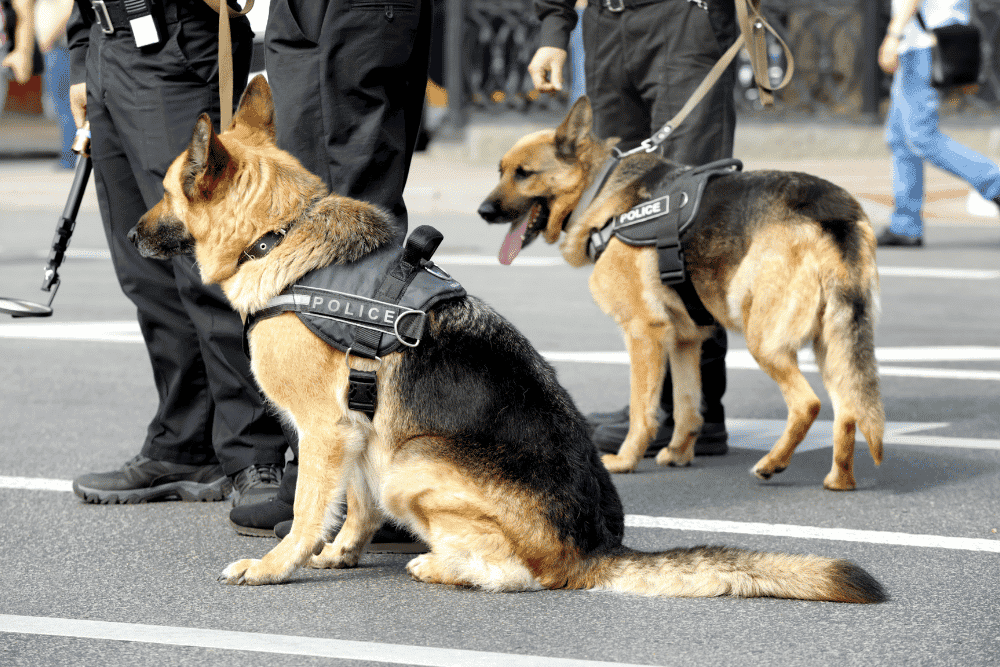- Home
- THE FIRM+
- Criminal Defense+
- CASE RESULTS
- AREAS WE SERVE+
- FAQ’s
- Blog
- Contact
AZHARI LLC BLOG
Jun. 4 2021
K-9 Unit Bust? See If Your Rights Were Violated

Posted By: Sami Azhari
Category:
The last thing anyone wants is for the cops to search their property. And if a K-9 unit enters the scene, your day can go from bad to worse fast.
It’s vital that you understand your rights as a United States citizen in circumstances like these. After all, you are granted constitutional rights that are directly applicable to search and seizure by the police and K-9 units.
Here’s what you need to know about how the Constitution protects you, the rules that K-9 units must abide by when searching, and how evidence can be used against you in court if you’re charged with a crime as a result of the search.
Your Fourth Amendment Rights
The Fourth Amendment of the U.S. Constitution protects your right to privacy. It states that you have a right to be secure in your home and in other effects, like your car, against unreasonable search and seizure by the police.
The police need either probable cause or a warrant to search you and your belongings. If they don’t have one of those, any evidence they gather against you during the search and seizure is not admissible in court.
Basically, because the state violated your rights to get the evidence, they cannot use that evidence against you. Law enforcement must be able to show that they were justified in their search.
When it comes to using a K-9 unit for searches, the Supreme Court of the United States has deemed it lawful – but only if they locate evidence without violating your Fourth Amendment rights. That’s why certain rules must be followed for K-9 units in searches.
Rules for Using K-9 Units
It’s important to understand that police can’t simply call a K-9 unit to a scene without reason. Police must abide by two rules when bringing in a K-9. These are:
Reasonable Suspicion
The initial stop of a person or vehicle must be based on the reasonable suspicion that the person has committed a crime. They can’t simply stop you because you look suspicious. They must have a real reason to do so.
Time Limits
The police cannot delay bringing in a K-9 unit when they deem it necessary.
For example, if your car is stopped, you cannot be made to wait past the time the initial traffic stop takes. If the police have already checked your registration and license and issued a ticket, they cannot delay you further as they wait for a dog to be brought to the scene.
However, you can be detained if they have a reasonable suspicion to do so.
The Evidence Collected
Remember, if law enforcement follow proper protocols when collecting evidence with a K-9 unit, that evidence can lawfully be used against you.
That doesn’t mean an attorney can’t use any plausible defenses in court. If your rights weren’t violated in a K-9 unit search, an experienced attorney will be able to construct defenses in other ways.
About the Author
Sami Azhari has been working as a lawyer since 2007, after receiving his Juris Doctor from the Michigan State University College of Law. He has handled numerous state and federal cases, and is known throughout the Chicago and Rolling Meadows area for providing his clients with high-quality, skilled representation. He has been recognized by Avvo (2013 and 2018), SuperLawyers (2015-2020), The National Trial Lawyers, and other notable organizations, and has spoken at a number of legal conferences.


























































